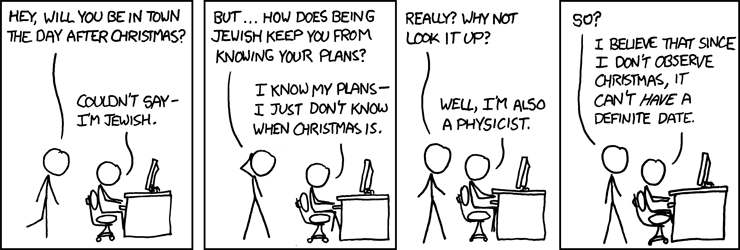Anyone who has taken the BAR/BRI course for the bar exam has probably heard this. One of the lecturers (I think it's the Criminal Law guy but I forget) used a metaphor that has stuck with me ever afterwards.
Learning, he said, comes in stages. At first you learn the basics, you rise up into the foothills and reach a peak of "glib understanding." You've mastered the basics. Everything is clear and easy and straight forward. You can apply these tools to solve a variety of problems (sadly this seems to be the level of competence in economic thinking that qualifies one to be on TV, but that's an entirely different topic). You understand.
As you continue to learn, however, a terrible thing happens. What you knew, or thought you knew starts to break down, because everything doesn't fit as easily as you would like. There is corner case after corner case, things don't line up with each other. All the knowledge you previously gained seems to be melting into a stew of contradiction. This, as he called it, is "the Valley of Confusion."
If you persevere through the valley, if you keep fighting your way through the thickets, you will start to rise up the slope on the other side, and eventually you will achieve "deep understanding." But only by struggling with the brambles of confusion will you get there.
His point in the course, was that the bar exam was a general legal knowledge test, and that one should not venture into the valley of confusion in preparation for it. The foothills of glib understanding were enough to pass. But I often think about the metaphor, because it seems to apply to so many things.
This is quite true of almost every rehearsal process I've been a part of. You read a show. Usually several times, and come into the first read with confidence. You understand what you're saying and to whom. You understand why you're there and what you want. Maybe you've even got some lines memorized. You know.
Rehearsal proceeds into blocking and ... and things start breaking down. Not that your initial impulses are wrong, but you find new things, and yes, sometimes you discover you WERE wrong. You give a line to a new person and sometimes it changes the whole meaning. Meanwhile you get to the phase where you want to put your script down, but you can't quite do it. That point where you're both ready and not ready at once. You want to work on meaning, but to complete the work you need to stop listening to yourself repeating and repeating your next line and start listening to your fellow actors.
Eventually (hopefully!) you get through this thicket. You get to the point where what you WANT to say is what you SHOULD say. Your lines feel natural, how else would you respond? Believe it or not this happens with Shakespeare too. You start connecting the feelings with the words. At first this can actually be startling, even distracting. Especially when you finally put down the script and look into someone's eyes. A new emotion can make you feel like perhaps you've made a mistake or cause you to be lost. But eventually you're there, listening, reacting (well most of the time... no performance I've ever given is completely described this way I think, but this is what we strive towards).
Anyway, I was thinking about where we were in the rehearsal process and this is what came to mind. After our last rehearsal I think we're deep in the valley, but we're working our way through and I think we may be starting to climb up the other side. I can just start to feel the slope under my feet. My breath is coming heavier. When one is in the valley, sometimes the despair creeps in, the doubt that you will ever look through a break in the trees and see anything below. But we're getting there. Despite the detours and track backs the clear vision is coming.








.jpg)

